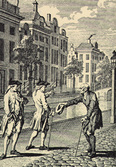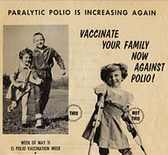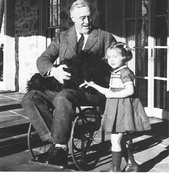"...in the past, people with disabilities were considered to be less than human, incapable and a burden on society. "
Arlene Mayerson, Personal Interview - February 22, 2013
Arlene Mayerson, Personal Interview - February 22, 2013
Prior Perceptions
Initially, society perceived the disabled as unsightly and banned them from public view. The American Eugenics Movement (1927-1974) sought to end the “disease” by sterilizing the disabled. Gradually, society began to pity the disabled, treating them with charity, and finally, attempting to cure them.
"We were living under substandard conditions."
It's Our Story - Larry Ruiz, Disability Rights Activist - July, 2010
It's Our Story - Larry Ruiz, Disability Rights Activist - July, 2010
Disabled Are Ugly
|
|
Disabled Are Diseased
|
|





